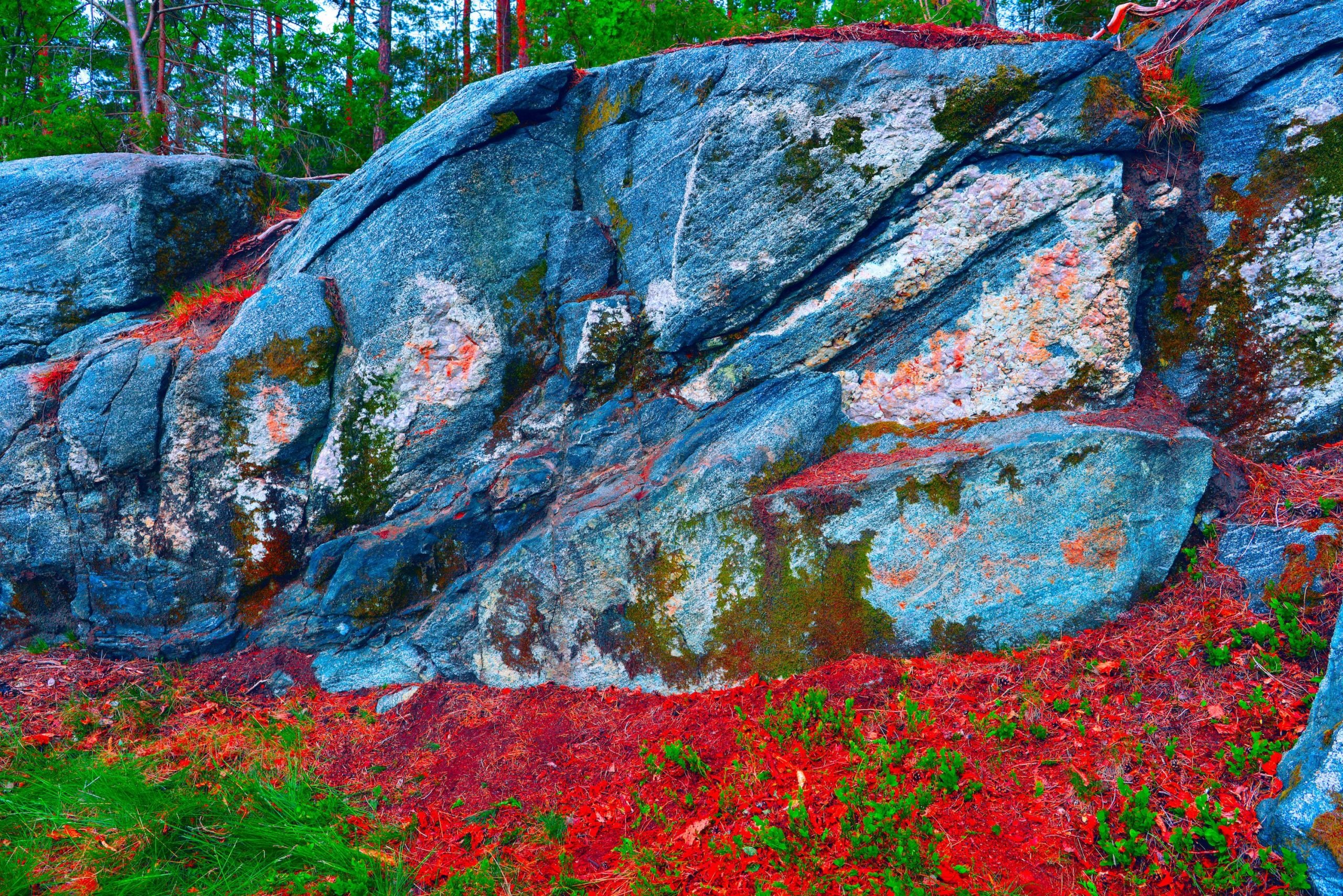
A man on a hike with his family in the countryside outside of Oslo, Norway, has stumbled across a rock face covered in Bronze Age paintings.
The discovery did not, however, come as a complete surprise to Tormod Fjeld, a graphic designer and devoted amateur archaeologist who has hunted down more than 500 petroglyphs with friends in recent years.
And so, when Fjeld spotted a nearby boulder with unusual coloration while taking a break from hiking, he was ready. Fjeld pulled out his phone, took a picture, and then plugged it into an app that could clarify if the markings were natural pigments, such as iron deposits, or something altogether more interesting.
Once a scene of human figures and animals came into view, he promptly called Jone Kile-Vesik, the local archaeologist, with whom Fjeld has collaborated many times previously.
Experts think the painting depicts a hunting scene. Photo: Jan Magne Gjerde, NIKU.
“We were enjoying a little snack of juice and biscuits on a Sunday when I saw something red on the rock,” Fjeld said in an interview with the Norwegian Institute for Cultural Heritage Research (NIKU). “I took a picture and went into the app. I had something like an out-of-body experience. I didn’t really think it could be anything.”
Kile-Vesik called in a team from NIKU to inspect the rocks and they quickly confirmed Fjeld’s latest find. The paintings, which include depictions of rowers and standing human figures, are the first to have been found in the coastal area of Østfold and Viken—though the precise location is, for now, being kept a secret to protect them, given contact can quite easily remove pigment.
A scene with a boat and rowers, a colour effect by Dstretch and Adobe Photoshop was added. Photo: Jan Magne Gjerde, NIKU.
“They are extremely hard to find due to the faintness of the paint,” NIKU’s Jan Magne Gjerde told Artnet News. “Not many people have been looking for them, which is why not many have been found, though we are sure there are more paintings.”
It’s the first time that this type of painting has been found in southern Norway and based on the motifs and style researchers believe they were made during the Bronze Age, though the Iron Age remains a possibility.
The researcher also noted that the paintings had been protected by the rock’s overhang, which means it’s possible that the whole rock was at one time covering in markings.
More Trending Stories: